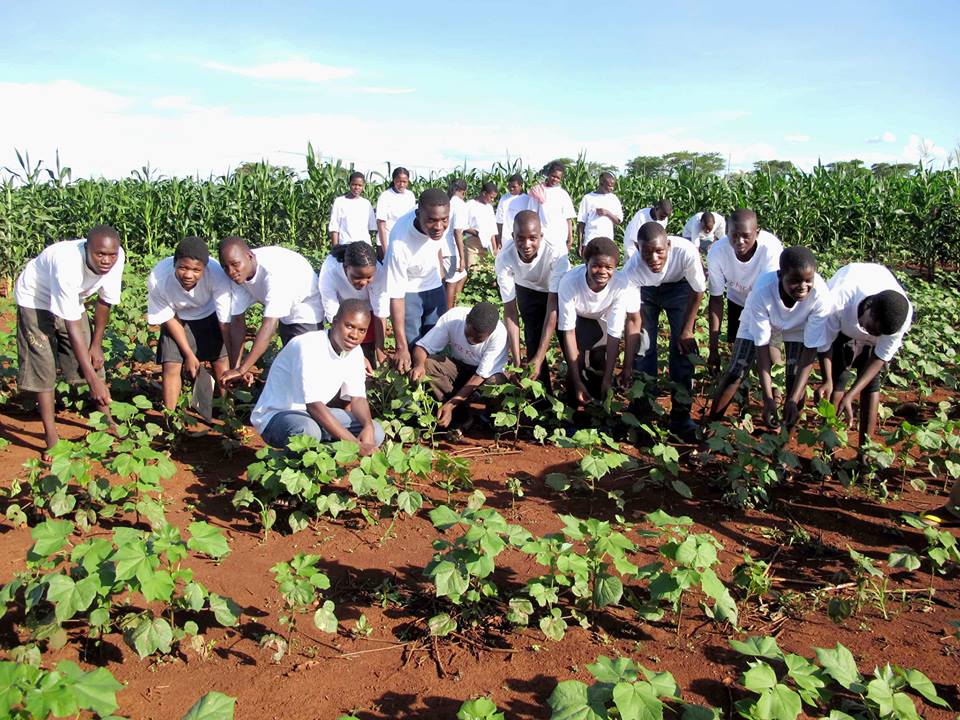Christopher Makaza
Zimbabwean youths have taken the agriculture industry seriously, making it more attractive to other young people, in the process helping to create decent employment opportunities for them, both in rural and urban areas.
Agriculture remains key to employment creation and industrial value chains; hence it offers huge opportunities for the young people.
Youths are now taking farming seriously by contributing to the country’s agricultural output and food security which was traditionally known as the old man’s profession.
Youths across the country are supporting Government’s economic transformation agenda through agriculture as it is key to the economy and benefits every sector for the benefit of the nation.
Many young people have graduated from aspiring to nurture their careers towards white collar profession and they usually considered farming as a primitive profession only reserved for the elderly. They complained that agriculture was hard and boring, with very little income.
However, a group of young farmers across the country are defying odds by committing themselves to farming after realising that if well managed, it offers great commercial value. These youths have studied and understood the dynamics of farming and have ventured into lucrative sectors which are critical in rebuilding the country’s economy which is agro-based.
Goat, piggery, sheep, cattle breeding, poultry projects, market gardening, tobacco, maize and cotton farming are some of the agricultural activities being taken by the youths. Social and main stream media platforms are there to testify the good work being done by these hard working youths.
Permanent Secretary in the Ministry of Lands, Agriculture, Fisheries, Water and Rural resettlement, Dr John Basera, also known as ‘Mudhumeni Mukuru’ is taking a leading role in encouraging the youths to venture into agriculture and he recently won the Young Corporate Director of the Year.
These achievements augur well with the Government’s aspirations of ensuring that youths become key economic players, as espoused by President Emmerson Mnangagwa.
The youths make about half of the country’s more than 13 million people and should play a pivotal role in shaping and influencing the direction of the Zimbabwe’s future food security.
Despite their level of education, many youths, some degreed, have since realised that migrating to urban areas no longer guarantees jobs and employment opportunities and fortunately the Government and other development organisation now see it as critical to mainstream youth participation in all rural development programmes and are ready to support them.
Most of the youth are unemployed and many live in the rural areas where there is vast arable land yet they were not keen to engage in agriculture for various reasons.
Many youths are now beneficiaries of the Smart Agriculture formerly known as Command Agriculture and the Presidential Input Support Scheme which provide free agriculture inputs to maize and cotton farmers with a view to cushioning them and ensuring food security.
Complementing Government’s efforts in assisting youths in agriculture, Livelihoods and Food Security Programme (LSFP) run by Practical Action and other partners, is helping to deter young people away from stereotypes associated with traditional farming.
The LSFP is part of the Improved Nutrition and Sustainable Production for Increased Resilience and Economic growth (INSPIRE) project funded by the UK’s Department of International Development and managed by the Food and Agriculture Organisation (FAO).
It aims to improve agricultural productivity access to markets and nutrition in Makoni, Mutasa and Mutare rural districts. The INSPIRE programme is engaging youth in agriculture and making them more visible in the country’s development agenda.
The INSPIRE project encourages youth participation in farming as agriculture offers the young generation a chance to make a difference by growing enough food to feed the nation and the rest of the continent.
In all the programme areas implemented by Practical Action, signs are there that main-streaming youth participation in agriculture can help change youth perceptions on agriculture, helping them to view it as an exciting and innovative industry.
The Headlands Goat Breeders Association is thriving and is also supporting young people to play an active role in taking farming as a business.
Youth contribution in the agricultural sector will make Zimbabwe a bread basket of the region again. It is achievable through hard work and unwavering support from all stakeholders.




